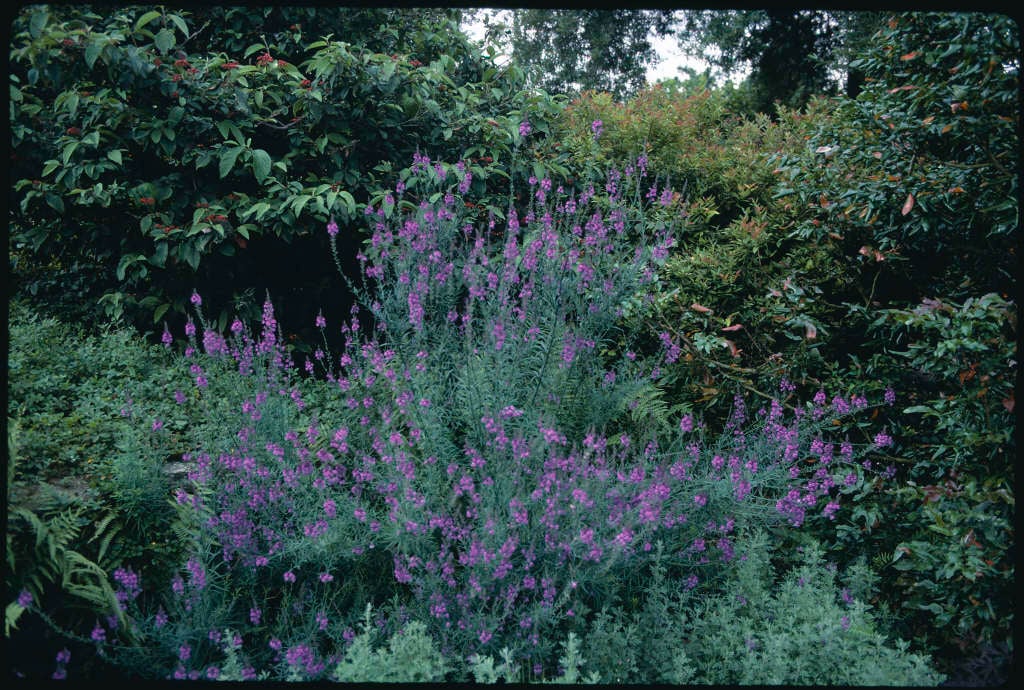Linaria purpurea
purple toadflax
A vigorous perennial about 60-90cm tall, with erect stems clad in narrow, grey-green leaves, and bearing two-lipped violet-purple flowers 1.5cm long in slender terminal racemes in summer and early autumn; often seeds freely

Buy this plant
Size
Ultimate height
0.5–1 metresTime to ultimate height
2–5 yearsUltimate spread
0.1–0.5 metresGrowing conditions
Moisture
Well–drainedpH
Acid, Alkaline, NeutralColour & scent
| Stem | Flower | Foliage | Fruit | |
| Spring | Green Grey Silver | |||
|---|---|---|---|---|
| Summer | Purple | Green Grey Silver | ||
| Autumn | Purple | Green Grey Silver | ||
| Winter |
Position
- Full sun
Aspect
South–facing
Exposure
Exposed or Sheltered Hardiness
H6Botanical details
- Family
- Plantaginaceae
- Native to GB / Ireland
- No
- Foliage
- Deciduous
- Habit
- Bushy
- Genus
Linaria can be annuals, biennials or herbaceous perennials, with simple leaves and terminal racemes of 2-lipped flowers with conspicuous spurs
- Name status
Correct
- Plant range
- C Italy to Sicily
How to grow
Cultivation
Grow in moderately fertile, light, well-drained soil; sandy soil is ideal. Full sun essential
Propagation
Propagate by seed in pots in a cold frame in early spring. Propagate by division or softwood cuttings in spring
Suggested planting locations and garden types
- Coastal
- City and courtyard gardens
- Cottage and informal garden
- Wildlife gardens
- Flower borders and beds
- Underplanting of roses and shrubs
Pruning
After flowering, plants can be cut back to prevent self-seeding
Pests
May be susceptible to aphids
Diseases
May be susceptible to powdery mildews
Love gardening
Sign up to receive regular gardening tips, inspiration, offers and more
View our Privacy Policy
Get involved
The Royal Horticultural Society is the UK’s leading gardening charity. We aim to enrich everyone’s life through plants, and make the UK a greener and more beautiful place.